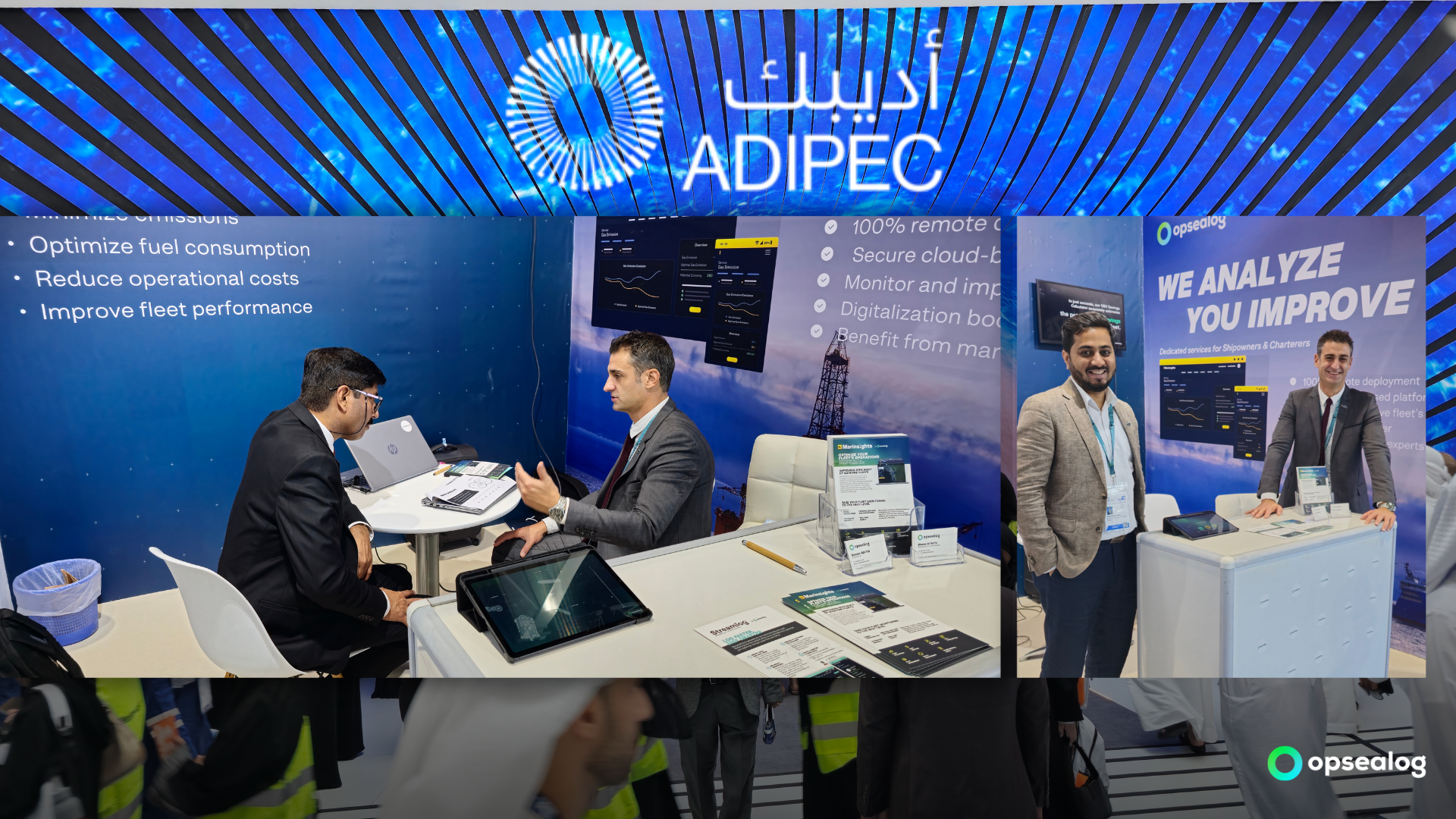The ADIPEC 2024 conference was a remarkable showcase of innovation and collaboration, addressing challenges in the energy and maritime sectors. Over four days, 2,250 energy leaders from across the energy sector gather to discuss the evolving landscape of the energy transition.
Opsealog was represented by Damien Bertin, Business Director, and Bharat M Patil, Communications Marketing Manager, who exhibited in the Marine & Logistics Zone and attended key conferences. Their presence allowed the company to engage directly with industry leaders, contributing to and absorbing invaluable insights. These discussions affirmed the importance of adopting holistic strategies to meet decarbonization targets. Optimizing performance not only reduces carbon emissions but also enhances their contribution to a resilient, low-carbon future.
→ Collaboration Is Essential
A dominant theme throughout the conference was the urgency of reshaping the global energy ecosystem amidst evolving geopolitical and environmental challenges. Transitioning to lower-carbon fuels requires a collective effort across governments, industries, and sectors. Stakeholders can effectively overcome barriers like financing and infrastructure to deploy low-carbon solutions by pooling resources, establishing global standards, and fostering innovative partnerships.
Collaboration is critical to achieving ambitious net-zero targets. The maritime industry will benefit from cross-sector partnerships that can ensure the integration of data-driven efficiency solutions.
→ Operational excellence drives Decarbonization
Operational excellence was another key takeaway from ADIPEC 2024. This framework, centered on leadership, continuous improvement, and data-driven processes, has proven to be a vital driver of efficiency and sustainability. For the offshore and, more generally, the maritime sector, every decision—whether related to route optimization, fuel usage, or maintenance—can significantly impact both environmental outcomes and operational costs. Companies that prioritize fleet performance management can make measurable progress toward decarbonization while maintaining competitiveness in the industry.
Data remains central to achieving operational excellence and sustainability. Advanced technologies such as data analytics, automation, and artificial intelligence transform raw operational data into actionable insights. These solutions help optimize vessel performance, improve fuel efficiency, and ensure compliance with evolving regulations.
You can learn more on ADIPEC 2024 website
Insights from our team
“ADIPEC 2024 reinforced the reality that achieving a low-carbon future requires both bold innovation and practical action. These four days of insights and discussions have confirmed that we are not only part of this transformation but are also helping to lead the way.
Finding the right solution provider has become increasingly challenging in a complex and crowded market. At Opsealog, we are proud to stand out by consistently delivering value to companies, charters, and shipowners over the past 10 years. Trusted by leaders like ADNOC L&S, our dedication to driving operational excellence and sustainability continues to position us as a key partner in the energy transition.
As we reflect on the conference’s themes, one thing is clear: the industry has a pivotal role to play in shaping a sustainable future, and Opsealog stands ready to help. Together, we can turn ambition into action and contribute to a cleaner, more resilient ecosystem.”

